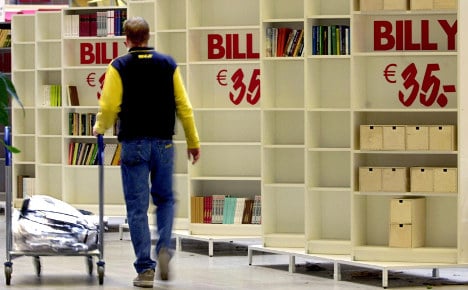The firm was ready to build new stores, but he said applications to build new branches, particularly in residential areas, were often hindered or scrapped all together due to protests from locals and politicians concerned about their area’s small businesses.
“If you take Germany, then we would have liked a further store in Stuttgart, but the discussion has already lasted years and years. And Lübeck took ages,” he said.
Ohlsson said he was disappointed by how slowly the company was expanding in Germany, which is Ikea’s biggest single market, accounting for 15 percent of its global business. There are already nearly 50 branches in the country.
“We want to be nearer to our customers and we’re ready to start building new stores,” Ohlsson said. “The government can stimulate investment in the company by speeding up the bureaucracy process.”
Despite Ohlsson’s complaints, the company announced record profits of €2.97 billion in the last financial year. This is 10.3 percent more than the previous year
This has not discouraged the Swedish furniture giant, however, as Ohlsson announced the company is aiming global, hoping to open up branches in more than its current count of 30 countries.
“Over the coming years we want to grow responsibly and sustainably as a company” Ohlsson said. “Ikea is still relatively small in many countries. Like in China, for example. We have decided to aim for growth to triple there in the coming year.”
Ohlsson also told press that the furniture giant plans to build at least one new shop every year, for the next ten years. “I hope Germany will be able offer us our support in this,” he said.
The Local/DPA/jcw



 Please whitelist us to continue reading.
Please whitelist us to continue reading.
Member comments